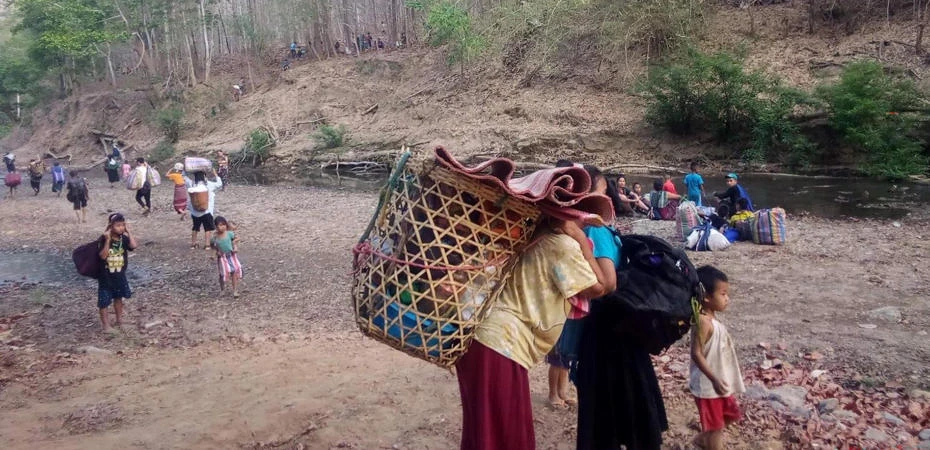
Young Karen survivors of conflict chase their dreams in Thailand
Fleeing bombardment and oppression by the military junta in Myanmar, families belonging to the persecuted Karen minority take great risks in helping their children cross over to neighboring Thailand. But for the children and young people, life as an unregistered asylum seeker is dangerous. CSI partners offer them protection and help.

Many Karen people are hiding out in remote forests. csi
The families of religious minorities such as the Karen, who are persecuted by the military junta in Myanmar, live in constant fear. Many are forced to flee from attacks and hide out in the forest.
Out of necessity, many send their children to neighboring Thailand. But for the children and young people, life there as an unregistered asylum seeker, far from their parents and without freedom of movement, is difficult.
The CSI partner in Myanmar is providing help to 40 refugee children and young people in Thailand. This aid will enable them to complete secondary school and qualify for vocational training, and later obtain Thai citizenship. Only this way will they have the chance to realize their dreams.
Most of the girls want to become nurses to help victims of violence or other asylum seekers. The boys want to become car and motorbike mechanics, hoping to earn enough money to support themselves, their families and other refugees.
CSI partner is like a mother to the children
For these children – all of them from Christian homes – CSI partner Kakreh Moo is like a mother. She takes care of their needs and makes sure they are properly fed and clothed. Her husband Garry drives the children to town when needed and takes care of the necessary official paperwork.
The children attend three different schools in the Chiang Mai area. In 2022, many of them contracted Covid and developed a fever. CSI partners ensured all those who were sick received medical attention, and they all made a full recovery. But illness is not their biggest concern; what they fear more is attacks by the army.
Personal risk
The conflict in Myanmar between the military and ethnic minority militias has escalated since the military coup in February 2021. Since then, the junta has killed more than 3,000 civilians and arrested nearly 20,000. Hundreds of families are on the run.
Kakreh Moo has taken bags of rice, dried fruit and medicine to a refugee camp, risking her life. This necessitated a three-hour boat ride on the Salween River, the border between Thailand and Myanmar.
The Myanmar military maintains a high level of surveillance on any movement along the river, pointing their guns at all those who travel by boat. Despite the great danger, the CSI partner also provided transportation for seriously ill refugees who needed to be taken to a city hospital. Without this help, they would have died.
“God’s providence”
The conflict between ethnic militias and the military junta has been going on for decades. Hundreds of thousands of members of minority populations, including many Christians, have been displaced, wounded, tortured or even killed in recent decades. Clashes between the military and rebels have driven 1.2 million people from their homes, according to the UNHCR.
CSI launched its aid project in 2020. No one knew at the time that the pandemic and coup would turn this relief effort into a lifeline for many. Looking back, CSI partner Kakreh Moo calls this “God’s providence.”
Anugrah Kumar

